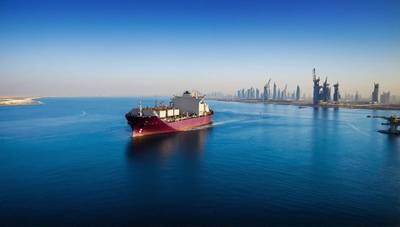US and Qatar fill the gap left by EU's ban on Russian LNG imports
EU bans Russian LNG imports starting in 2027
US and Qatar will boost LNG export capability by then
By 2027, global LNG capacity will increase by 161 million mtpa
Marwa Rashad and America Hernandez
PARIS/LONDON - According to analysts and data, the European Union can replace Russian LNG imports from 2027 with an alternative supply without any major price shocks. This is due to booming projects being undertaken in the United States of America and Qatar. The EU approved new sanctions on Russia Thursday for its conflict in Ukraine. These sanctions ban Russian LNG imports starting January 1, 2027. This is a year sooner than originally planned. The EU's energy payments to Moscow are now under scrutiny again after U.S. president Donald Trump demanded the European Union cease all purchases. The EU has reduced its dependence on Russian energy to 90% since 2022 but has imported Russian energy worth more than 11 billion euro so far this season.
After the Russian invasion of Ukraine in 2022-2023, European economies experienced a spike in gas prices. However, since then there has been a surge in LNG projects around the world. Analysts predict that this will lead to a glut in global gas supplies later in this decade.
According to the International Group of Liquefied Natural Gas Importers, Russia provides the European Union with LNG in the amount of 21 million tons annually, of which 15,5 million tons are under long-term agreements. Rabobank estimates that the increase in global LNG exports by 161 million tonnes per annum (mtpa), by 2027 is much greater.
"2027 will be a crucial year for the expansion of LNG exports, particularly from the US and Qatar. ... "There is enough LNG coming online to cover a Russian shortage, especially if Russian gas can simply flow into other markets, like China," said Florence Schmit at Rabobank, an energy strategist. Rabobank data shows that the United States will increase its exports by more than 50 million tons per year (mtpa) from 2025 to 2027, thereby cementing the country's position as the world's top exporter.
According to Energy Aspects, the U.S. already supplies over 50% of EU LNG. This share could rise as high as 70%.
Qatar will add 31 mtpa to its output due to the North Field expansion, while Canada and Nigeria are also planning new projects.
Anne-Sophie Corbeau is a scholar with the Columbia University Center on Global Energy Policy. She said that, "All in All,... stopping Russian LNG imports to Europe should have minimal impact on gas price."
Arturo Regalado, of Kpler, explained that the EU LNG ban would not affect overall Russian supply on the market but will instead reshape trade flows globally as cargoes are likely to shift towards Asia.
The Arctic LNG 2 project is expected to increase Russia's existing capacity of approximately 33 mtpa by nearly 20 mtpa.
Corbeau stated that prices in Europe and Asia may rise if Russia cannot sell significant volumes LNG in Asia because of a combination sanctions and the unwillingness of Asian buyers in importing it.
(source: Reuters)




